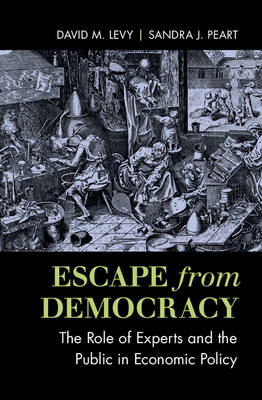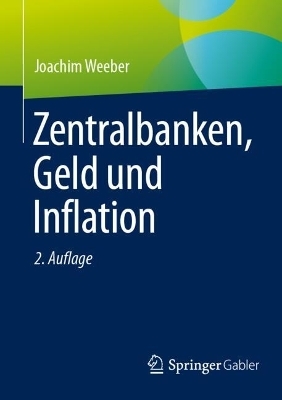
Escape from Democracy
Cambridge University Press (Verlag)
978-1-107-14239-8 (ISBN)
The orthodox view of economic policy holds that public deliberation sets the goals or ends, and then experts select the means to implement these goals. This assumes that experts are no more than trustworthy servants of the public interest. David M. Levy and Sandra J. Peart examine the historical record to consider cases in which experts were trusted with disastrous results, such as eugenics, the regulatory use of security ratings, and central economic planning. This history suggests that experts have not only the public interest but also their own interests to consider. The authors then recover and extend an alternative view of economic policy that subjects experts' proposals to further discussion, resulting in transparency and ensuring that the public obtains the best insights of experts in economics while avoiding pitfalls such as expert bias.
David M. Levy is Professor of Economics at George Mason University, Washington DC. He has worked with Sandra J. Peart at the University of Richmond for fifteen years, and both have co-directed the Summer Institute for the History of Economics and have been honored by the History of Economics Society. Sandra J. Peart is Dean and Professor in the Jepson School of Leadership Studies at the University of Richmond. She is a former president of the History of Economics Society and the president of the International Adam Smith Society.
Acknowledgments; Part I. Introductory Themes: 1. Introduction; Part II. The Discussion Tradition: 2. On 'strongly fortified minds': self-restraint and cooperation in the discussion tradition; 3. The Knightian moment; 4. The rise of new welfare economics: an end to endogenous goals?; Part III. When Linear Models Fail: Two Cases: 5. Experts and eugenics: 'science' privileges a social goal; 6. Expert judgment and Soviet growth; Part IV. An End to Discussion: Secrecy and the Temptation to Bias: 7. Experts and the philosopher's stone: John Law's secret financial alchemy; 8. The consequence of suppressing discussion: imprudence with biased experts; Part V. Getting the Best out of Experts: 9. A revised code of ethics for experts; 10. Mitigating the consequences of factional expertise; 11. Inducing greater transparency; Part VI. Conclusion: 12. Vox populi?
| Zusatzinfo | 13 Tables, black and white; 17 Halftones, color; 15 Halftones, black and white |
|---|---|
| Verlagsort | Cambridge |
| Sprache | englisch |
| Maße | 154 x 239 mm |
| Gewicht | 590 g |
| Themenwelt | Sozialwissenschaften ► Politik / Verwaltung ► Staat / Verwaltung |
| Wirtschaft ► Volkswirtschaftslehre ► Makroökonomie | |
| Wirtschaft ► Volkswirtschaftslehre ► Mikroökonomie | |
| Wirtschaft ► Volkswirtschaftslehre ► Wirtschaftspolitik | |
| ISBN-10 | 1-107-14239-3 / 1107142393 |
| ISBN-13 | 978-1-107-14239-8 / 9781107142398 |
| Zustand | Neuware |
| Haben Sie eine Frage zum Produkt? |
aus dem Bereich


